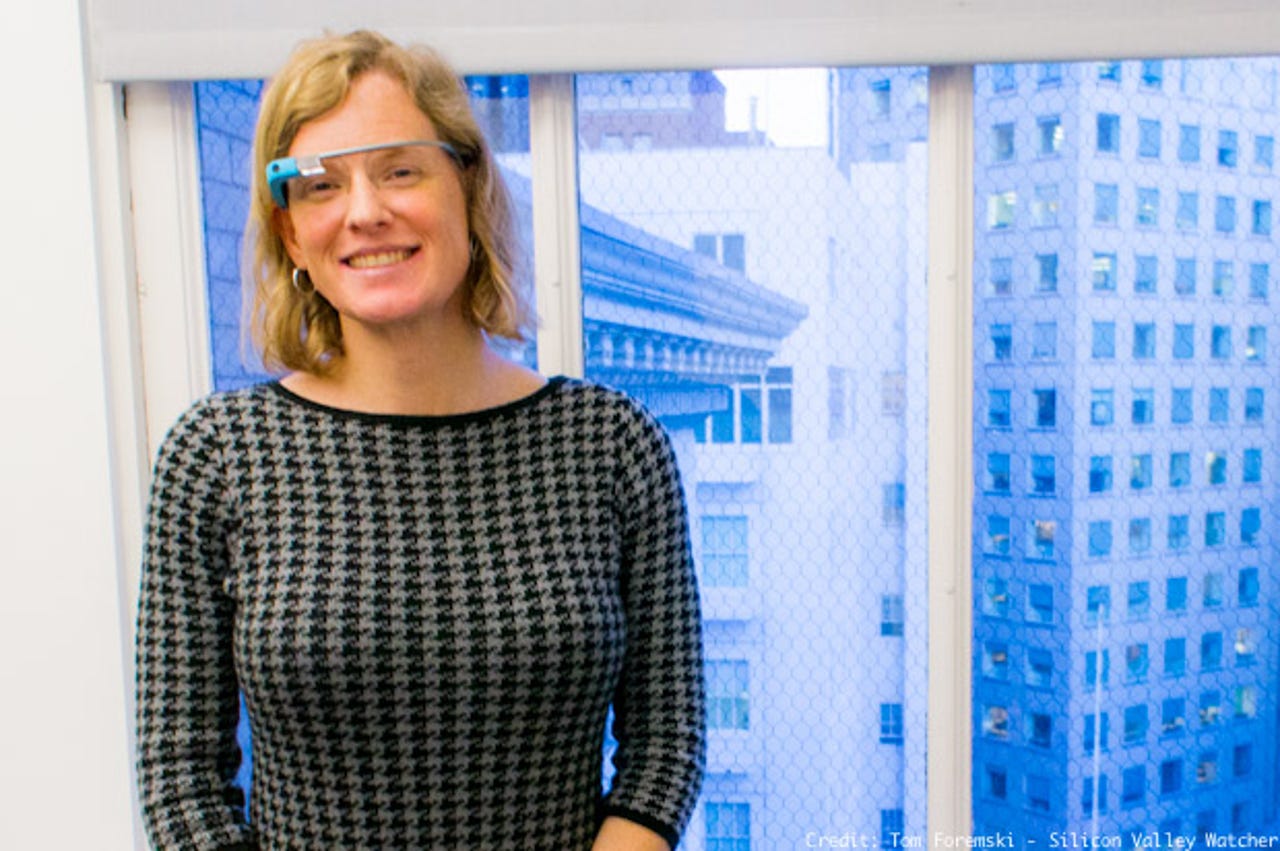Gild says its algorithms could be used to lift people out of poverty


I had a fascinating conversation recently with Vivienne Ming, Chief Scientist at Gild, a San Francisco-based company that scans the Internet to identify potentially great software engineers for their clients.
Finding good talent — especially software engineers — is incredibly hard, but Gild says its algorithms can identify people with the right fit, in qualifications and also in cultural fit, sometimes in places where companies wouldn’t think of looking.
AR + VR
Gild weighs many factors: where a person went to school; their online contributions to Github and other online sites; where they are currently employed; and subtle factors such as the words they use to list and describe their skills.
One of the top software engineers at Gild was discovered when he was running a T-shirt business in Southern California, and teaching himself to write his own content management system on the side.
Ming has a doctorate in Psychology and Computational Neuroscience from Carnegie Mellon University. She’s convinced that given the right data, it's possible to find people with the right attributes to make a great employee, not just in software engineering, but also in a many other professions.
Gild has discovered some interesting factors in hiring engineers. One of the biggest is that where someone went to school matters very little about three years after graduation. (This is something that Google recently revealed despite its long-standing policy of hiring heavily from Stanford and MIT.)
Social climbing by algorithm…
Ming is super excited by something else that she has discovered. She believes the same approach can help lift people out of poverty and impact communities suffering from social and economic disadvantages. By focusing on kids early in their education, she believes her algorithms can greatly improve their chances of going to college, and landing a well-paying job.
For example, she says that it’s not enough to identify bright kids. The problems with a lot of scholarships offered to economically disadvantaged kids is that they don’t take them.
However, data shows that kids will accept scholarships if they know someone who has done the same. Thus pairing bright kids with older mentors in their communities who have successfully finished college helps to dramatically increase college attendance.
The data around kids and their education has tremendous utility, she says. It can help guide kids through their educational needs from an early age. It can also be used to help increase the number of women in software engineering and other professions, by starting early in the educational process.
While it might seem cold and cynical to trust an algorithm to judge kids so early in their lives, if the result is they lead productive and fulfilling lives, and their example influences others in their communities, then that’s a very good thing.
Gild is potentially on the brink of a much more important story than helping Silicon Valley companies discover more Rails coders.
- - -
Here’s a description from an article by Katie Arnold-Ratliff on how Gild works:
Ostensibly, the company is an HR consultancy, doing recruiting legwork for outfits in need of fresh blood. But at its core, Gild is a matchmaker, uniting programmers with the jobs that best fit their skills — and, by extension, that best allow them to fulfill their potential. To find these people, Gild deploys sophisticated software to scour the Internet's open-source Web sites, like GitHub and SourceForge, where software engineers share computer code that's visible to anyone who cares to read it. In seconds, Gild's program makes thousands of observations about that code, evaluating its idiosyncrasies to divine insights about its author. It also searches for ancillary information about each programmer — via his LinkedIn page or Twitter account.
These data are plugged into the Gild algorithms; each tidbit, however small, is a valuable clue. If a software engineer tweets "I love celery," it's possible, if unlikely, that he's referring to the vegetable — it's much more probable, Ming says, "that he's talking about Celery, the multiprocessing framework for Python, a popular programming language. And if he uses Celery, he almost certainly uses RabbitMQ or Lettuce, and if he uses those he's probably making Web apps using Flask or Django, and if he uses Django, he knows all about templating languages like Jinja... and that single tweet suddenly paints a rich picture of this person, in a way that listing 'Python' on a résumé would not."